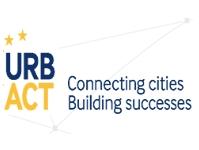
URBACT, the European Territorial Cooperation programme for fostering sustainable integrated urban development in cities across Europe, has published the report ‘Integrated Regeneration of Deprived Areas and the New Cohesion Policy Approach’, which explores the existing national policies and practices regarding this issue.
With regard to the growing threats of urban poverty and its spatial concentration, URBACT has launched an initiative to explore the existing national policies and practices of integrated regeneration of deprived areas.
EU policies towards the support of area-based interventions have developed gradually over the decades, achieving good results with the URBAN community Initiative in the early 2000s. After a retreat in the last financing period with the mainstreaming of URBAN, the opportunity for better integrated policies came to the fore again in 2014 with the introduction of dedicated support for Sustainable Urban Development.
Although the approaches of the EU countries are very different, it is an important sign that the two largest EU countries, Germany and France have recently introduced new policies towards deprived areas, with substantial increase of the financial support (partly in conjunction with the new Cohesion Policy tools) to regeneration interventions, the report states.
